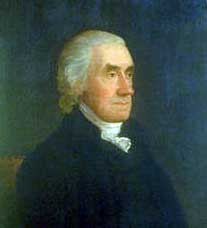Paine, Robert Treat

Born in 1731 in Boston, Massachusetts, Robert Treat Pain was the son of a clergyman turned merchant. He received his education at Boston Latin and later at Harvard. Initially he worked as a teacher, but later, at the urging of his family, he entered the ministry. After serving as a chaplain in the French and Indian War, however, he decided to enter a new profession, law, and he was admitted to the Massachusetts bar in 1757.
Robert Treat Paine became involved in the patriot movement quite early on. He was a friend of both John Adams and John Hancock, and was part of the prosecuting team at the Boston Massacre trial. Additionally, he went on to serve on the Massachusetts legislature for a better part of the 1770's, and he was among the original delegates sent to represent Massachusetts at the Continental Congress from 1774 to 1776. While at the Congress he concentrated his efforts on military and Indian affairs, and was tagged with the nickname, “Objection Maker” as a result of his arguments against so many proposals. He was reelected to the Congress in 1777, but he opted to remain in Massachusetts where he went on to hold the post of attorney general until 1790. In that same year he was appointed by John Hancock to serve as an associate justice of the Superior Court. He stayed on in this position until his death in Boston at the age of eighty-three in 1804. He was laid to rest in the Old Granary Burying Ground.
 >
>